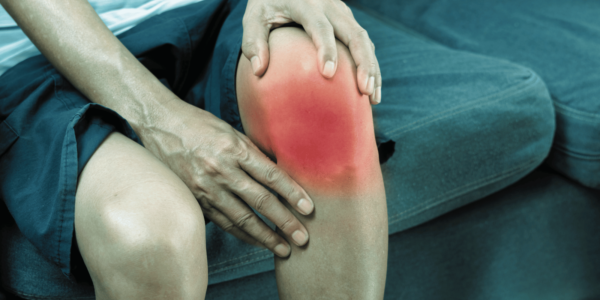KNEE PAIN

What are the different types of knee injuries that one can experience?
It’s crucial to remember that seeking advice from a medical expert for a precise diagnosis and treatment plan is essential if you’re suffering from knee pain. A few of the frequently occurring knee injuries are:
- Runner's knee, also known as patellofemoral pain syndrome, results from the irritation of the cartilage under the kneecap.
- Knee arthritis, which is a degenerative disease that leads to inflammation and discomfort in the knee joint.
- Knee ligament damage, such as an ACL or MCL tear, which can be caused by a sudden twisting or impact injury.
- Age-related changes: as we age, the spine undergoes degenerative changes that can cause conditions such as osteoarthritis or spinal stenosis, which can lead to back pain.
- ITB syndrome is an overuse injury that affects the iliotibial band and causes pain on the outer side of the knee
- Jumper's knee, also known as patellar tendinitis, is an overuse injury that results in pain in the tendon connecting the kneecap to the shinbone.
- Hoffa's syndrome is caused by the impingement of the fat pad under the kneecap and can lead to pain and swelling in the front of the knee.
What is the reason behind knee pain?
It’s essential to consult a medical professional for precise diagnosis and treatment of the underlying cause of knee pain. Factors that could contribute to knee pain are:
- Imbalances in muscles.
- Inadequate biomechanics or movement patterns
- Weak or inflexible muscles
- Overuse and degeneration caused by aging.
What makes the knee susceptible to frequent injuries?
The knee joint is vulnerable to frequent injuries due to the daily wear and tear and the strain it undergoes during physical activity. When walking, the knees support 1.5 times our body weight, and this increases to 3-4 times when climbing stairs and up to 8 times during squatting. Inadequate biomechanics, muscle imbalances, and excessive training can increase the risk of various knee injuries.
What are some home remedies for managing knee pain?
If you’re experiencing knee pain, you can attempt the following measures at home to alleviate the condition:
- Apply ice to the knee while elevating the leg to reduce inflammation and pain. Do this twice a day for 5-10 minutes.
- Rest more often to reduce the amount of strain on the knees.
- Stop all activities that cause added impact to the knee, such as running and gym exercises.
- Take anti-inflammatory medicine.
- Add more anti-inflammatory foods to your diet to aid the healing process.
- Wear more supportive footwear.
- If the knee feels weak or unstable, wear a knee brace.
Are you suffering from pain in your knee?
St Giles Physiotherapy & Sports Rehabilitation Clinic provides cutting-edge treatment technology and customised exercise rehabilitation to aid in swift and efficient recovery.
Our approach to treating knee pain begins with a comprehensive initial consultation, and we use a combination of laser therapy, shockwave therapy, EMS therapy, and exercise rehabilitation, all of which are non-invasive, quick, and highly efficient. Our main goal is to alleviate pain and inflammation while encouraging your body’s innate healing abilities.
We are proud of our proficiency in providing exceptional customer service and achieve a success rate of more than 95% in treating knee pain through the integration of these therapies. To schedule an appointment with one of our knee experts, please follow the link below and choose a time that suits you. We are eager to help you regain your optimal well-being!
